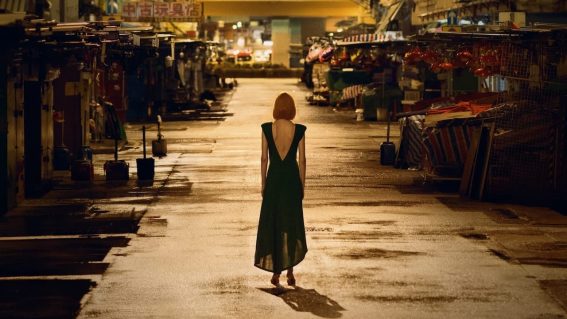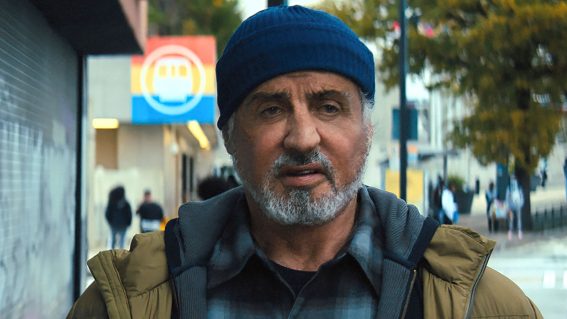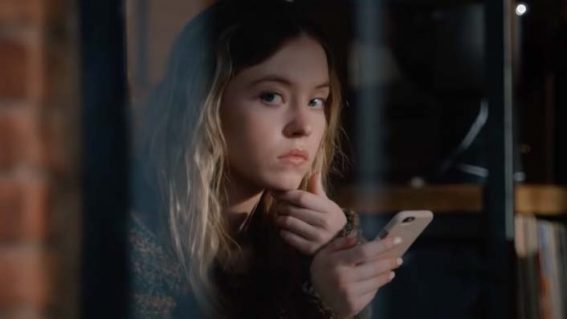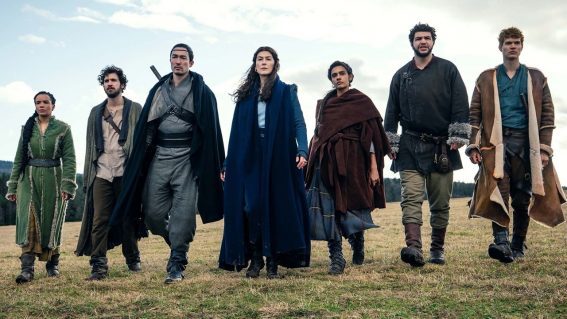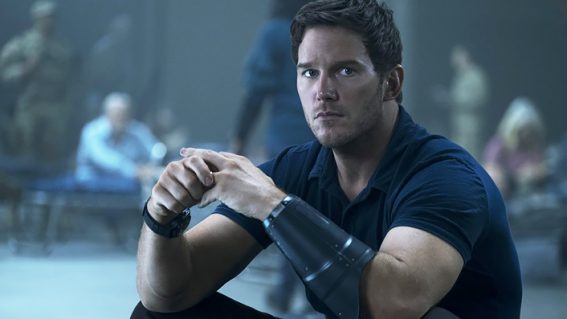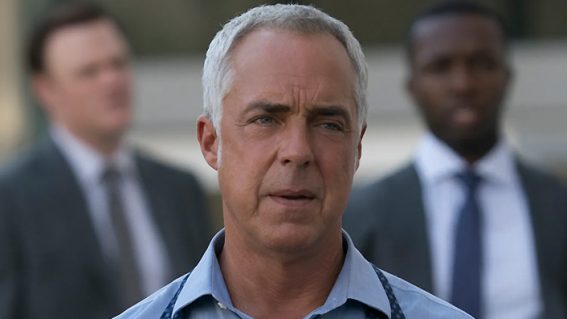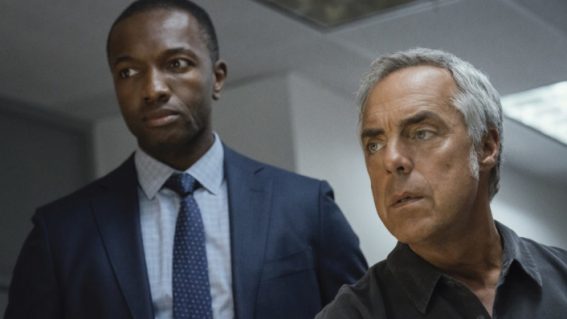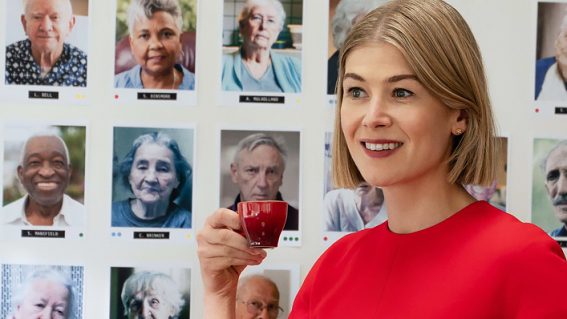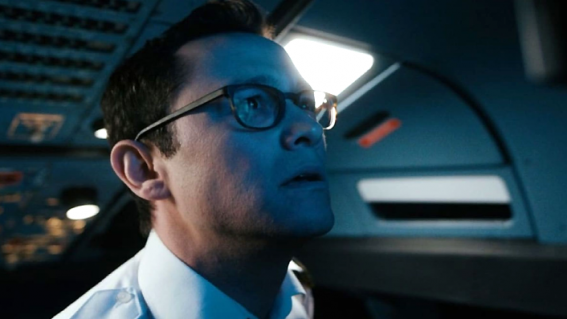Nine Perfect Strangers is like Agatha Christie at a posh wellness retreat
A “deliciously entertaining” blend of comedy and mystery.
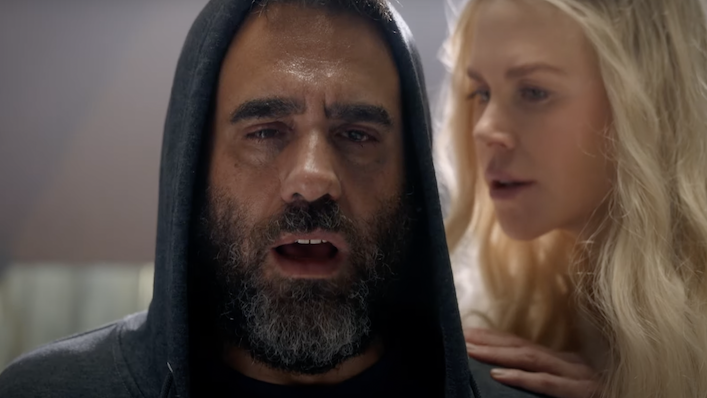
Based on the best-selling novel, Prime Video‘s star-studded ensemble drama Nine Perfect Strangers could just be “one gigantic mystery strip tease”. Luke Buckmaster seems pretty okay with that when it’s this entertaining.
The Agatha Christie way of understanding destiny is not to say that all things happen for a reason, per se, but that all things happen according to the designs of a particular person with particular motivations—inevitably of the diabolical kind. Creator David E. Kelley’s very entertaining new series uses a Christie-esque setup—recalling her masterpiece And Then There Were None—to unite a group of people who don’t know each other, but appear to have been chosen for carefully mandated reasons by a person surreptitiously pulling the shots.
See also:
* Best new movies and shows on Prime Video
* The best movies on Prime Video
We don’t know if the motivations of this person (who we’ll get to in a moment) are sinister; they might even be well-intentioned. We do know the central setting is a location synonymous with the concept of life improvement—a posh wellness resort—suggesting the clientele might indeed leave feeling refreshed, if a little lighter in the hip pocket. Then again, the characters in And Then There Were None thought they were going on holiday when they arrived on a remote island and got picked off one by one.
Will the titular characters in Nine Perfect Strangers emerge from the clinic better people, or not at all? Worse case scenario: they will at least consume some nutrients on the way out. When best-selling author Frances Welty (Melissa McCarthy) arrives she is handed a drink customised to cater for her “metabolic needs,” and informed by one of the staff (Manny Jacinto from The Good Place) that “one journey ends and another begins.”
You can get away with such misty-eyed codswallop in a place like this—called “Tranquillum House”—where phones are strictly prohibited, scents are carefully calibrated, and any nuts stocked on the premises are presumably of the “activated” variety. Will this series critique wealth and privilege, like The White Lotus?
You won’t find any answers here, partly because of spoilers (none here) and partly because the whole damn series is an ellipsis followed by a question mark: one gigantic mystery strip tease. In other circumstances this might have been frustrating but I found the six episodes made available to the press very enjoyable (almost guiltily so). They’re loaded with small reveals, juicy character interactions, and pockets of comedy: the sinister-ism is delivered with a wink-wink. The mystery involves not just what will happen and why, but what kind of show we’re watching; the tone and mood of it.
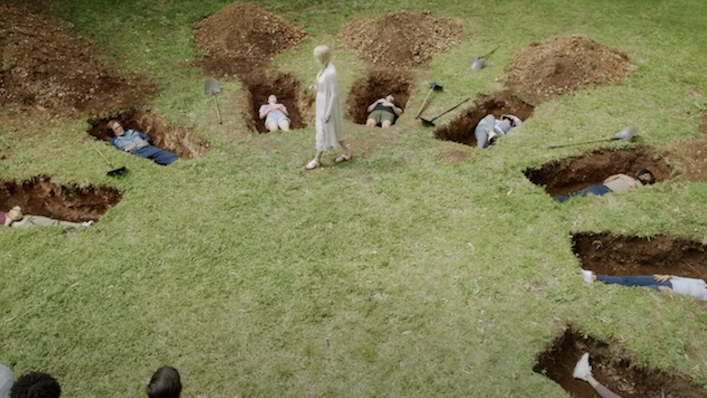
What is clear from more or less the outset is that the key to the mystery is the person running the joint: a slow-speaking Russian woman named Masha Dmitrichenko (Nicole Kidman) who has beautifully long Rapunzel-esque hair, a thousand yard stare and cult leader-like vibes. One of the people she invites, Lars (Luke Evans), stops by a shop en route to the clinic, chinwagging with the man behind the counter about how Dmitrichenko only picks certain people. He later comments that she “mixes and matches her guests—like a cocktail.”
Each of these guests are broken in different ways, calibrated by Dmitrichenko and the screenwriters (adapting a novel by Australian author Liane Moriarty, who also wrote Big Little Lies) to intersect with each other through their attitudes, backgrounds, world-views. Others yet to be mentioned here include guilt-ridden parents (Michael Shannon and Asher Keddie) dealing with the death of their teenage son, a straight-shooting everyman with an opioid addiction (Bobby Cannavale) and a married couple (Samara Weaving and Melvin Gregg) whose relationship is in the doldrums.
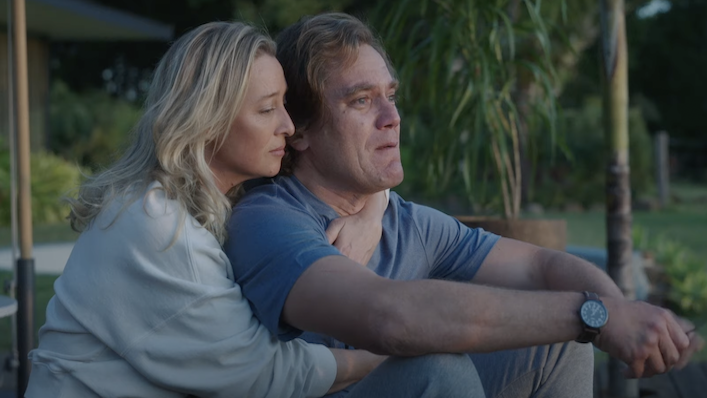
Several spend alone time, at various points, with the holier-than-thou Dmitrichenko, whose presence is a quasi-confessional, providing an apparently safe space in which to share/extract personal information. Kidman has the showiest part but, out of uniformly strong performances, I found Shannon and McCarthy most impressive. The former nails it as that chatty, slightly annoying, fundamentally decent extroverted American type, and the latter nails it too as a talented and witty writer—confident in many respects, doubt-filled in others—who fears she’s losing her mojo.
Mixing mystery (with an air of potential menace) and comedy isn’t an easy combination; mystery usually intensifies things and humour tends to take the edge off. Nine Perfect Strangers strikes that balance in deliciously entertaining ways, juggling characters who aren’t particularly deep or dimensioned but are good fun to be around. Not because of who they are, exactly, but how and why they clash. We can thank Masha Dmitrichenko for that—and we wouldn’t be surprised if we saw a copy of And Then There Were None on her desk.






